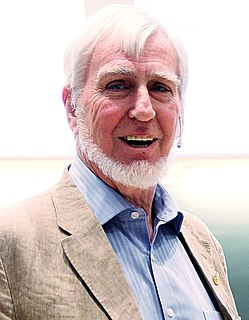A Quote by Richard Thaler
A nudge is some feature of the environment that changes the behaviour of humans but would not change the behaviour of rational economic agents, what we call Econs.
Related Quotes
The dialectical critique of positivist habits of mind ... is interested only in behaviour which is 'important' to the actor; that is, behaviour which is emotionally charged to the degree that it is either frequently recalled, reflected upon, or day-dreamed about. ... That science which is less discriminating in the behaviour it chooses to investigate gains clarity and distinctiveness at the cost of confining itself to the trivial.
My father is a cultural anthropologist and my mother ran an outpatient clinic and treated a lot of people who had been institutionalised. I was very fascinated with behaviour and criminology and why people do things that don't make any sense. I would probe my mother: "Why? Why would somebody do this?" And look for some causality between someone's mental state and their behaviour. I think it had a lot of influence on me.
The task of neural science is to explain behaviour in terms of the activities of the brain. How does the brain marshall its millions of individual nerve cells to produce behaviour, and how are these cells influenced by the environment...? The last frontier of the biological sciences – their ultimate challenge – is to understand the biological basis of consciousness and the mental processes by which we perceive, act, learn, and remember.
The current operating system [culture] is flawed. It actually has bugs in it that generate contradictions. We're cutting the earth from beneath our own feet. We're poisoning the atmosphere that we breathe. This is not intelligent behaviour. This is a culture with a bug in its operating system that's making it produce erratic, dysfunctional, malfunctional behaviour. Time to call a tech! And who are the techs? The shamans are the techs.


































